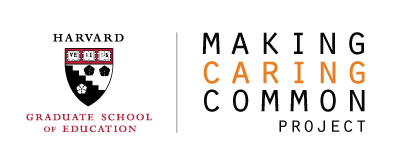Research shows that “likeness begets liking” and that when people find similarity along various dimensions, they can build a sense of relatedness. This strategy helps students get in the habit of noticing similarities — but it’s also important for students to learn how to acknowledge, appreciate, and even value differences from others.
With this light-lift strategy, students will be given the opportunity to talk about differences and similarities with others through various ways of “grouping” themselves. They will also consider how their opinions or viewpoints might differ from others based on certain elements of their identity or experiences. Critical reflections and discussions will highlight why it matters to understand the experiences of self, and others.
Currently, our One and the Same strategy is available to schools in our Caring Schools Network and to schools participating in the Middle School Kindness Challenge. Reach out to Glenn Manning, Senior Program Coordinator at Making Caring Common to learn more about Caring Schools Network.
Read More














